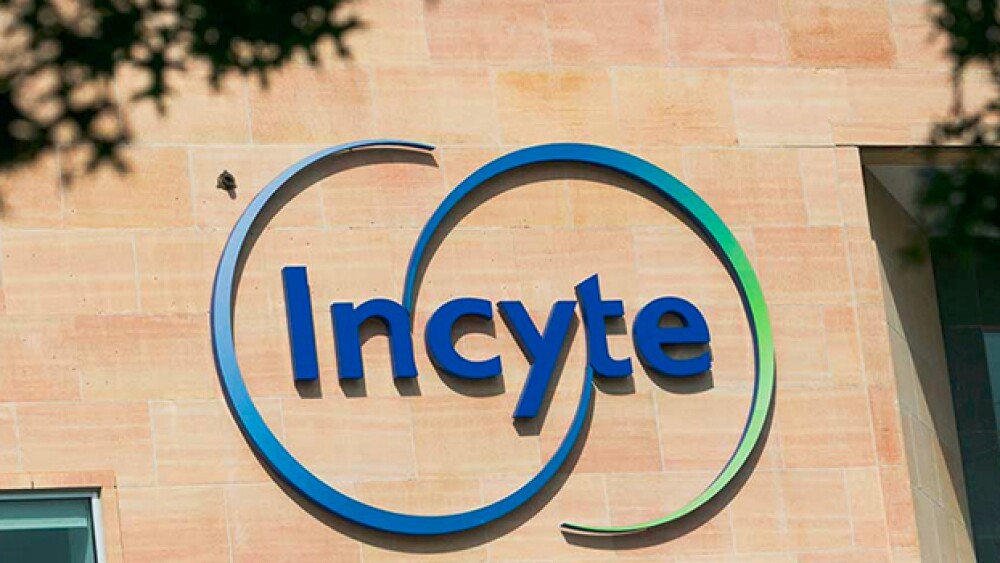Shares of Incyte Corporation are up slightly this morning after the company started off its annual R&D day with positive news from its pivotal REACH1 study of Jakafi (ruxolitinib) in steroid-refractory acute graft-versus-host disease (GVHD) and sets up the filing of a supplemental New Drug Application.
Shares of Incyte Corporation are up slightly this morning after the company started off its annual R&D day with positive news from its pivotal REACH1 study of Jakafi (ruxolitinib) in steroid-refractory acute graft-versus-host disease (GVHD) and sets up the filing of a supplemental New Drug Application.
In a statement this morning, Delaware-based Incyte said the Phase II trial met its primary endpoint, demonstrating an overall response rate (ORR) of 55 percent. In addition, the best overall response rate (BORR), the number of patients achieving a response at any time point during the study, was 73 percent, the company said. GVHD is a condition that can occur after an allogeneic transplant (the transfer of genetically dissimilar blood stem cells) and is a significant cause of morbidity and mortality in transplant recipients. Full results from the REACH1 study will be submitted for presentation at an upcoming scientific meeting, the company said.
As a result of the good news for Jakafi, Incyte said it will seek to file the supplemental New Drug Application in the third quarter of this year.
“The results of the REACH1 study demonstrate the potential of ruxolitinib to meaningfully improve the outcomes of allogeneic transplant patients who develop steroid-refractory acute GVHD and further underscore the promise of JAK inhibition to advance the treatment of this potentially devastating condition,” Steven Stein, Incyte’s chief medical officer said in a statement.
Ahead of the company’s R&D day, Chief Executive Officer Hervé Hoppenot said the REACH1 results reinforce the potential of JAK inhibition in GVHD, as well as the company’s development strategy for addressing that disease.
In addition to the REACH1 trial, there are two additional Phase III trials underway. The REACH2 trial is sponsored by Novartis in steroid-refractory acute GVHD, and the REACH 3 trial, which is co-sponsored by both Incyte and Novartis, is being conducted in steroid-refractory chronic. Data from both trials are expected in 2019.
In addition to the filing of a supplemental New Drug Application for Jakafi, Incyte said it intends to file a New Drug Application next year for INCB54828, which is being developed as a treatment for patients with advanced cholangiocarcinoma. Initial data from the FIGHT-202 trial evaluating INCB54828 in patients for that indication are showing promising efficacy in patients with FGFR2 translocations, the company said.
While those points are positive, Incyte did share some negative information ahead of its R&D day. The company noted one of its CITADEL trials studying INCB50465 (PI3Kδ) in non-Hodgkin lymphoma (NHL) did not live up to expectations. Initial efficacy data from the CITADEL202 trial in patients with diffuse large B cell lymphoma did not meet defined response rate criteria. Incyte said this study will not be extended. Other CITADEL trials will continue though, with initial data expected in 2019, the company said.





